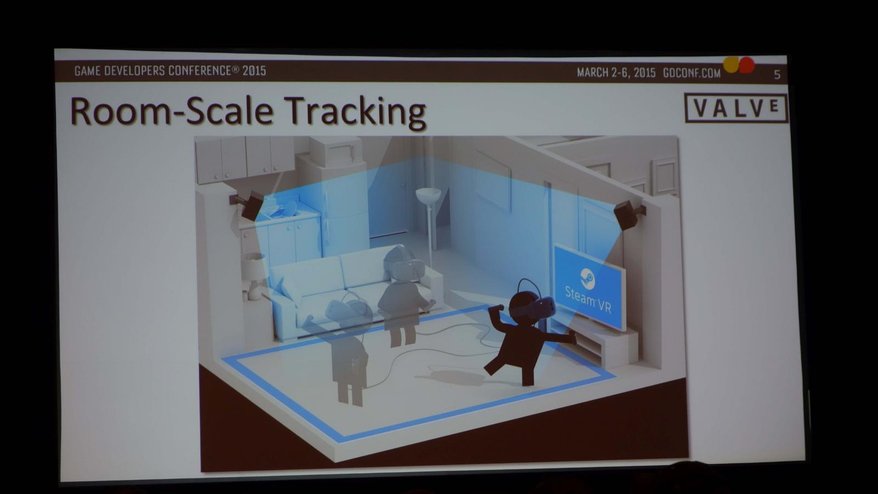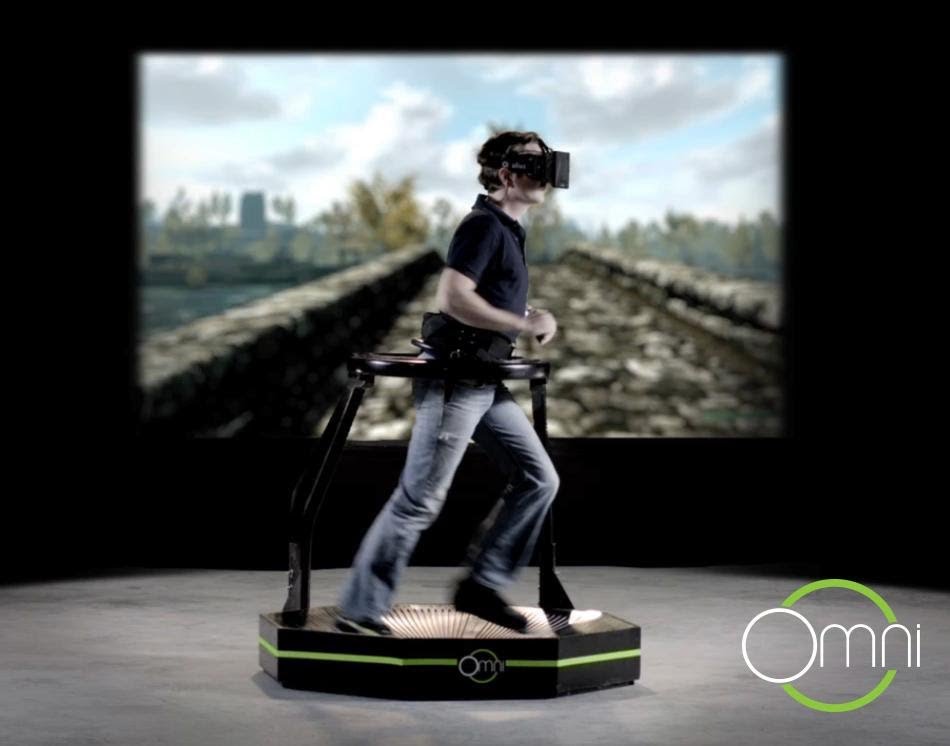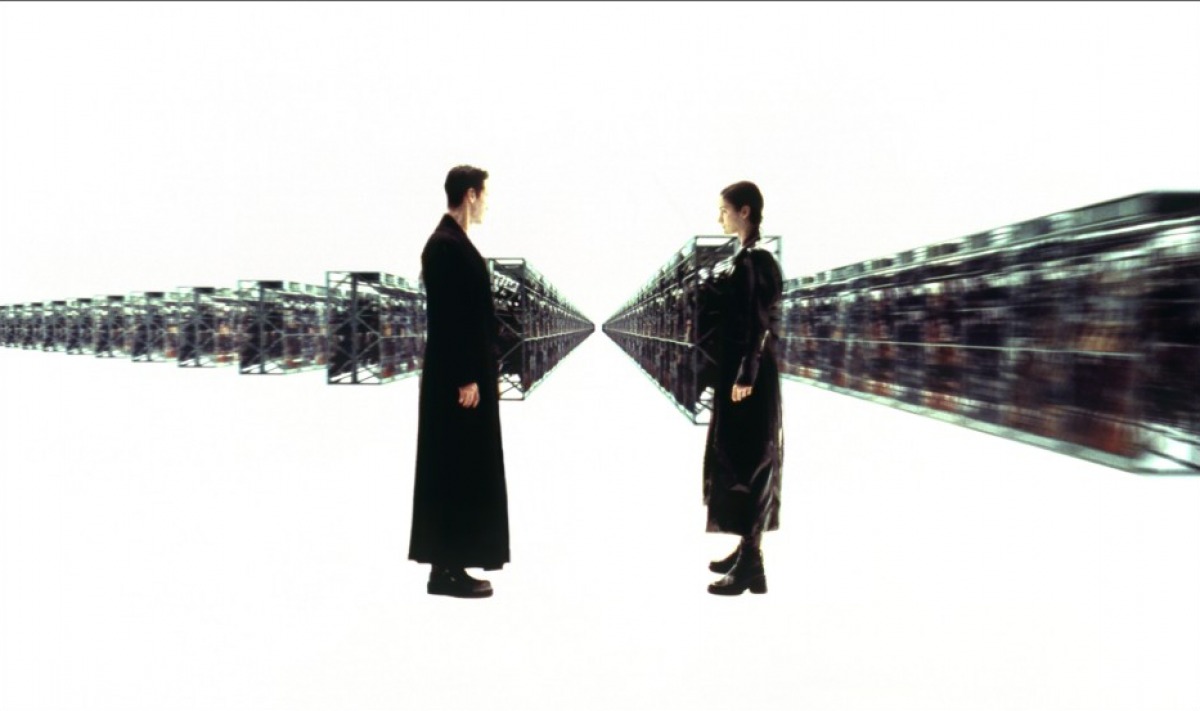Game Developers Weigh in on VR Input
Maximum PC: Should the Rift ship with the Touch controllers, even if it meant a price hike and a delay for the HMD?
Justin Liebregts (Co-founder of Futuretown, Cloudlands: VR Minigolf, Jeeboman): This is primarily a business decision. I trust the guys over at Facebook/Oculus to do what's right for VR. They are clearly in it for the long haul, and overall, I have huge respect for their company.
Richard Stitselaar (Vertigo Games, Arizona Sunshine): I can’t speak to what would make the most sense for Oculus in this situation as it obviously involves some trade-offs between release window, price, and functionality. They have to make those decisions with their own business strategy in mind. Ultimately, the delay in releasing the Touch controllers should not have a material impact in the long-term health of VR or Oculus.
Joachim Holmér (Neat Corporation, Budget Cuts): As a game developer, I would say yes. Being able to target a platform and know that all users have tracked controllers is a huge advantage. We don't want to target a niche (Touch) of a niche (Rift) of a niche (VR) of a niche (High-end PCs). That being said, Oculus is pushing non-interactive media quite a lot as well, it might make sense for them to release just the HMD first.
Denny Unger (Cloudhead Games, The Gallery): There are some great experiences designed for gamepad, which are a terrific introduction to the format. We know many developers who have invested their heart and soul into polishing those experiences and it makes perfect sense to hinge launch content there. The progression to Touch should happen organically and I think Oculus is doing the right thing there. From a developer perspective, motion control requires time to understand and the more time the broader development community has to master it the better.
The Gallery is an episodic series that is heavily inspired by sci-fi/fantasy films from the 80s.
Dirk Van Welden (Founder of I-Illusions, Space Pirate Trainer): In an ideal world, all VR kits should come with VR controllers, just to bring fresh new gameplay.
One thing I noticed is how some people find it weird that most [VR] titles come from independent studios, without major budgets. I want to say two things about this. First of all, it's a risk. We don't know how many VR-kits will be sold this year so we also don't have a clue about our potential amount of customers. Also, it's a very good thing that independent studios are writing on these blank pages when it comes down to gameplay. It's a new platform, we want fresh gameplay, and these studios can take more risks when it comes down to fresh new approaches in VR.
The biggest gaming news, reviews and hardware deals
Keep up to date with the most important stories and the best deals, as picked by the PC Gamer team.
Andy Moore (Radial Games, Fantastic Contraptions): I personally think they should, but I have no idea if that's the "right choice" to ensure the market stays afloat, long term. I hope the Oculus, the Vive, PSVR, and all other platforms have healthy long tails and we don't have yet-another-VR-collapse. If someone has an answer as to what the "right move" is here, I'd love to hear it! Right now my uninformed gut says "ship with Touch!" but I have no idea how accurate that is.
Maximum PC: As a developer, how important is room-scale and the ability to walk around (however small the space is) to you, your games, and the future of VR?
Justin Liebregts (Co-founder of Futuretown, Cloudlands: VR Minigolf, Jeeboman): Being able to have a proper standing experience while turning around with 360 degrees of movement, while having tracked controllers to me is the future of VR, and anything less is going to fade into the background. It really needs those tracked controllers though. Room-scale VR without tracked controllers isn't much of a leap. I think all the hardware manufacturers know this and are moving in this direction so I'm excited to see what's coming in the future.

Richard Stitselaar (Vertigo Games, Arizona Sunshine): Even a small amount of movement can dramatically increase presence and the immersion of the experience. This dramatically increases the quality of the experience for a user. That said, you have to be sensitive in your design so it can fit other control schemes. Some of the design choices we have made in Arizona Sunshine, for instance, do not push the full boundaries of movement in room scale, as the experience needs to work on multiple VR devices.
Dylan Fitterer (Audioshield): Room scale is here to stay. As a gamer, I love it - and I know many other players are going to want it. Even just standing makes VR feel better.
Joachim Holmér (Neat Corporation, Budget Cuts): It ultimately depends on the game, but, for me, VR didn't click until I tried tracked controllers in room-scale. It just felt so much more compelling, and I've never had the same amount of presence in a game before. It's the most compelling experience, but there are plenty of people worried about the practicality of it.
Dirk Van Welden (Founder of I-Illusions, Space Pirate Trainer): About moving: I'll be short about this, creativity flourishes with new possibilities within constraints. Let's try to create games that use the current amount of space in an optimal way first. I really think there are a lot of interesting ideas coming! Walking forward in games is usually boring (I say usually, because games like Mirror's edge are an exception).
Alex Knoll (Stress Level Zero, Hover Junkers): Roomscale is incredibly compelling, even in small spaces. For the VR user experience, it is important for players to maintain a sense of immersion, room scale provides a confidence in a tracked playspace volume. Designing for room scale is extremely exciting to us and we can't wait for consumers to experience it as well.
Andy Moore (Radial Games, Fantastic Contraptions): I look at features like these as broadening experiences. There are games that are possible in room-scale that simply aren't in a smaller (standing/seated/outside VR) play space. The same goes with tracked hands - there are more games possible with that as a lifted constraint.
There's nothing saying you need to use up your entire room, or that you need two hands always tracked forever, but your options as a designer get bigger and better the less restrictions you have.
The games we are currently working on all require tracked hands as a minimum requirement. You can play each of our games in a seated mode, technically speaking, but the experience is much better standing - and even better than that if you can take a step or two in each direction. If you don't have to worry about stubbing your toe on a sofa (and have a bit more space to use), believe me when I say developers will take advantage of your comfort and range of motion. :)
I worry more for the future of the coffee-table industry than the VR industry at this point. :)
Alex Schwartz (Owlchemy Labs, Job Simulator: the 2050 Archives): Owlchemy Labs has decided to never build another non-VR game again. We're now building *EXCLUSIVELY* standing-only, fully-hand-tracked VR games. We believe that having properly tracked hands in VR is what makes VR compelling and brings out your inner child, evoking curiosity and a child-like wonder for players. With that, we're only focusing on room-scale VR titles moving forward, and only on platforms that support tracked hands.
Job Simulator has you flailing your arms about as you cook up recipes in the kitchen.
Denny Unger (Cloudhead Games, The Gallery): Room-scale can help resolve many issues related to vection and vestibular disconnect because the user's physical actions are driving the experience. The ability to physically rotate in a 360 space, sit, stand, crawl, laydown, walk, and look at objects spatially from all angles, these are all key internal cues that ground the user in the experience and prevent discomfort.
This is the source of some debate out there in the gaming community, and on the surface it seems easy to understand why it feels gimmicky. However once you try an experience crafted specifically for the format, it's extremely hard to deny. You'll rethink what gaming is at a fundamental level. You'll stop equating gaming to the confines of a seated experience and start equating it to the world's first generation Holodeck. It's that good, and it has that potential.
People will make space for roomscale VR because it is so compelling, so engaging, so deeply immersive that every prior form of media pales in comparison. That's not to say gamers won't still enjoy their favorite game on the couch or at their computer, but room-scale done right is like going to an event, an event you will be incredibly excited to attend.
Maximum PC: Are you guys at all concerned about the wire that dangles on the ground for the Vive? If so, are you guys trying to design around that?
Richard Stitselaar (Vertigo Games, Arizona Sunshine): We put a lot of thought into how fast players should turn and spin in our game. However, we find that most of our play testers are comfortable with managing the cable and their movements by themselves, without a spotter.
Arizona Sunshing has you dual-wielding guns against zombies.
Alex Knoll (Stress Level Zero, Hover Junkers): We have found people who try VR are quickly able to subconsciously manage the cable and haven't found it to be a problem.
Denny Unger (Cloudhead Games, The Gallery): We call this "Cordgate" at the studio. Not to diminish the importance of getting rid of the cord (hopefully we're only a few short years away from that) but after a couple games you develop "cordsense," and pretty swiftly forget it's there. Your brain does a freakishly amazing job at managing unnatural extensions to the point where you just simply stop thinking about it. In hundreds of demos we have yet to see a single person trip on the cord and we make a point of NOT managing the cord for players. Will it happen? Could it happen? Sure, but its over-hyped.
Justin Liebregts (Co-founder of Futuretown, Cloudlands: VR Minigolf, Jeeboman): I've discussed this with many of the other devs and most people think it's a moot point. People seem to think it's an issue, but really, it's not. I've given hundreds of demos without cable-jockeying and no one has ever had a problem with it. After a few minutes you get used to having it dangling on your back. Yes, VR will be better without it, but that's coming, and having to deal with a wire in the mean time isn't as big a deal as many people who haven't tried it are making it out to be.
Joachim Holmér (Neat Corporation, Budget Cuts): We're only worried about it when the player is wearing shoes, otherwise, it's not an issue. Almost everyone has gotten used to it, even if they've never used it before. You feel the cable easily, and managing it becomes second nature.
Andy Moore (Radial Games, Fantastic Contraptions): The cable is a necessary nuisance at this point, but we quickly adapt to it. "Is it annoying having to wear a belt across your lap when you drive?" "Is it annoying to wear a helmet when on your motorbike?" I mean, everyone will answer yes to this. Until it becomes the norm and people just say, "Whatever. I don't think about it."
For me, it took a few hours to get rid of the cord from my conscious thought. It's now just a thing, a part of my body. One developer remarked that it's like their tail, and they'll miss it when it's gone!
Everyone agrees that the cable should disappear if possible, but so should seat belts in cars and helmets on motorbikes. Once the technology is there to support the experience, we'll be good.
Dylan Fitterer (Audioshield): The wire looks like a concern from the outside, but it isn't. I don't worry about it when in VR and it's never been a problem. I did trip out the cable at a recent press demo, but I wasn't the one wearing the Vive! :)
Maximum PC: What do you guys think of additional treadmill-like devices (see Virtuix Omni and others) for VR?
Alex Knoll (Stress Level Zero, Hover Junkers): We haven't had the chance to play with any of the treadmill systems so we have yet to see.

Justin Liebregts (Co-founder of Futuretown, Cloudlands: VR Minigolf, Jeeboman): I personally haven't tried it. Tough to comment, although any additional input devices that can add to presence, I welcome into the VR ecosystem. It's all about tricking your mind into believing you're there, and every little bit helps.
Richard Stitselaar (Vertigo Games, Arizona Sunshine): They certainly add to the potential for greater immersion. They also open up more game design flexibility for player movement.
Andy Moore (Radial Games, Fantastic Contraptions): They're interesting and I haven't tried any of them yet. I worry about market penetration rates on these devices, and as an indie developer, it's difficult for me to consider them a serious avenue of revenue. If any one of them wanted to give us loaner hardware, we'll whip up a few games because we love designing around new toys! But we can't stake our mortgages on it at this time.
Joachim Holmér (Neat Corporation, Budget Cuts): I don't think any of us have used them, but it seems very odd. While you get the foot motion correct, you still won't feel the acceleration you should feel when walking. From all the testing we've done with motion sickness, it seems like that's another case where it will happen for many users. But, again, we haven't tried it yet!
Denny Unger (Cloudhead Games, The Gallery): Treadmills are great in theory (and I still want one!) but they suffer from vection issues related to velocity. You may feel your legs walking, but your inner ear is not experiencing that forward/backward accelerations/velocities, which can result in some some discomfort. They do, however, handily take care of rotational velocities (the biggest offender in VR) and they have an incredible form factor.
Maximum PC: Instead of holding physical Wii-mote like controllers, what do you guys think about using camera tracking on the HMD to simply track your hands (Ala a more accurate Leap Motion or similar device)?
Justin Liebregts (Co-founder of Futuretown, Cloudlands: VR Minigolf, Jeeboman): I like what Leap Motion is doing, but I'm a bit concerned about button pressing without actual [physical] buttons. Controllers with actual buttons and weighted analog inputs are still amazing for fine tuning and detail work. It's sort of like how touch screens are great for certain tasks, but you can't beat a keyboard and mouse/stylus for other productivity tasks. If hand tracking can get as good as touch screen input, I think it would be huge, but there's a long way to go for that, and again, it will be for certain types of VR interactions.
The Leap Motion has the potential to track your hands.
Richard Stitselaar (Vertigo Games, Arizona Sunshine): Seeing your own hands in VR is amazing, but for most games you physically want to interact and to pick up stuff, and holding a controller during these interactions helps with the illusion, instead of grasping into the empty void.
Joachim Holmér (Neat Corporation, Budget Cuts): I don't think that's ever going to work well, unless you design all content to fit those constraints. Our game, Budget Cuts, wouldn't work at all. You often use the controllers while you can't see them, holding objects, interacting with things. If they aren't tracked outside your field of view, you'll lose that entire range of interactions.
Dylan Fitterer (Audioshield): It sounds very cool, and is probably awesome for some uses, but what about when you can't see your hands? VR allows natural interaction, even where you can't see. In Audioshield, you often need to block beats while looking the other way.
Dirk Van Welden (Founder of I-Illusions, Space Pirate Trainer): Camera tracking on the HMD... mmm, I don't think that's a good solution. I've watched many people playing Space Pirate Trainer, and you'll see that only a few people actually are looking at their hands. The hands/controllers should always be tracking. Gloves using the same technology that the controllers use, would be a better solution.
That said, the feeling of having something "real" in your hand, adds to the immersion. That's why we modeled the handle of the lasers pistols just like the controllers for our demo.
Alex Knoll (Stress Level Zero, Hover Junkers): For social applications, we can see such systems being interesting to play with, however from a UX perspective, we feel it will be difficult for anything to compete with a physical tracked controller.
Denny Unger (Cloudhead Games, The Gallery): Camera-based tracking will surely come in the future, but currently it's up against some significant issues with latency and reliable pose recognition. The advantage of a controller is rock solid 1:1 tracking and you get the added benefit of haptics. Being able to feel objects and interactions in VR is a significant boost to immersion. That's not to say camera-based hand tracking won't eventually usurp physical controllers, but its hard to imagine VR without haptics. I would imagine we'll see visual hand tracking on mobile platforms first, where tracking fidelity takes a back seat to an intuitive interfacing.
Maximum PC: If you were to design the ultimate VR controller/input for your needs moving forward, what would it look like?
Richard Stitselaar (Vertigo Games, Arizona Sunshine): Having a controller that has full haptic feedback would be awesome.
Joachim Holmér (Neat Corporation, Budget Cuts): Not sure. Foot/knee/hip/chest/elbow tracking would be great though, to make full-body characters replicate poses. I'm pretty sure the lighthouse technology currently used in the Vive could pretty easily support it if you had the hardware skills to do it.
Dylan Fitterer (Audioshield): It feels like anything I suggest would end up being stupid and/or problematic once tried. This is all new ground! Like game design, the brainstormed ideas never work out, but they can lead to good ideas with iteration.
Dirk Van Welden (Founder of I-Illusions, Space Pirate Trainer): It would be great if we were able to track the whole body. Add some haptic feedback on your body and I think we're set... And in the distant future: brainwaves or another sort of direct injection would probably generate the best experience.
Alex Knoll (Stress Level Zero, Hover Junkers): We are happy with the controllers currently available and we are able to comfortably design interesting content around them. The development community has only just scratched the surface of what can be accomplished with these input devices, so there is still a lot of room for experimentation.
Andy Moore (Radial Games, Fantastic Contraptions): Probably some kind of glove that can give haptic- and force-feedback, with such sub-millimeter precision and scale in the actuators that you can feel texture as you press your hands onto objects in the virtual world.
What do you figure for that... 10 years away? $10K per hand? haha. We can dream, though.
Denny Unger (Cloudhead Games, The Gallery): I would love to see a controller that embeds resistance and gross haptics into the design. There are prototype designs for exoskeletons which give you shape resistance on held objects and push-back haptics. So squeezing rubber balls or grasping hard metal all give you back what you'd expect from the interaction. Having that level of morphing, tangible interaction with objects would add another level to the experience.
Maximum PC: Five years out, what do you think VR input will look like?
Joachim Holmér (Neat Corporation, Budget Cuts): It’s very hard to tell. We'll see!
Dylan Fitterer (Audioshield): I want foot tracking! Hopefully much more than that, too (five years is a long time).

Denny Unger (Cloudhead Games, The Gallery): I think we'll see a shift in wearables geared towards VR. At some point in the near future it will not be unusual to invest money into haptic suits and or densely interactive wands and/or gloves. These will probably be augmented by visual tracking of the players hands and full body.
The future is about to get really weird and everyone is underestimating how quickly it's coming.
Alex Knoll (Stress Level Zero, Hover Junkers): VR input in the future will depend on what design questions developers run into over the next couple years. The truth of it is we don't know what aspects of the user experience will catch on, what patterns we'll see in game mechanics, or what new methods of control that developers will implement into their content.
Andy Moore (Radial Games, Fantastic Contraptions): No f***ing idea. 12 months ago, we had no idea Valve/HTC were even in the running for a VR product; 5 years from now is so comically far out I have no idea what's in store for us.
It's such an exciting time to be alive.


